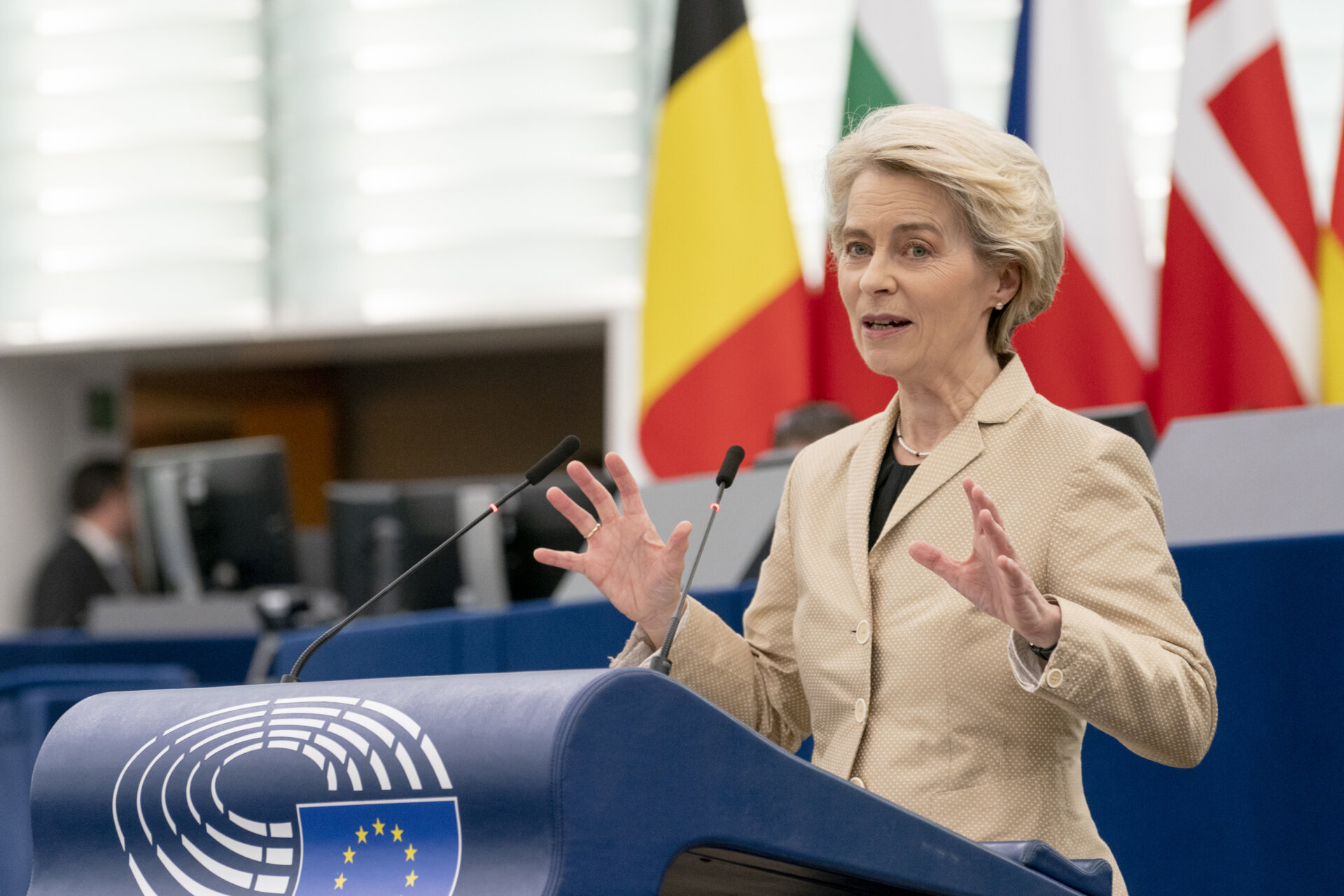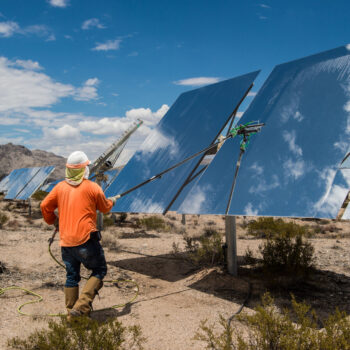The Green Deal Industrial Plan on Net Zero Age is a welcome steer towards climate neutrality but falls short of a full clean economy strategy.
The plan can give the European Green Deal the industry and investment dimensions it was missing, provided further iterations:
- Strengthen the focus on energy efficiency, for households and industry, boosting European resilience and bringing heavy industry along;
- Further leverage the EU’s robust sustainable finance framework and reform EU fiscal rules to channel investments where they are most needed, beyond EU funding;
- Seek clean economy cooperation with global partners through tailor-made partnerships on top of trade openness.
Story: The Green Deal Industrial Plan on Net Zero Age
Today the European Commission released its vision for boosting clean industries in the EU in the form of the Green Deal Industrial Plan for the Net-Zero Age (GDIP). It is a direct response to the US Inflation Reduction Act but comes at a time when the EU must ensure continued delivery of clean tech in the context of its energy crisis. The GDIP is based on four pillars: regulation, finance, skills, and trade.
The US’s incentive-driven approach highlighted the benefits of looking at climate action beyond target-setting and regulation. Member states have been vocal in calling for changes to the EU’s restrictive state aid framework and additional EU funding, with many fearing the risk of devolving to a green subsidy race within the EU, and internationally.
The EU has the opportunity to launch a Europe-wide response which accelerates decarbonisation, boosts clean tech and greening industries, and secures economic prosperity and energy security in the long term, in Europe and beyond. Heads of states and governments will build on the Commission’s proposal and aim to agree on a common response at the upcoming European Councils (extraordinary on 9-10 February, and 24-25 March).
What is currently on the table falls short of a comprehensive ‘clean economy’ strategy. It is too light on key EU clean tech sectors, such as energy efficiency and insulation, and lacks concrete next steps on levers like private finance and fiscal policy. It also broadly leaves heavy industry decarbonisation to the side, overlooking the potential for clean tech leadership in decarbonising industrial processes. Last, the Plan’s emphasis on enhancing trade openness to protect EU competitiveness risks putting critical clean economy cooperation on the backseat.
Quotes on the Green Deal Industrial Plan on Net Zero Age
Manon Dufour, Head of E3G Brussels office said:
“The plan is a needed burst of can-do energy for Europe. The vision of Europe as a leading and competitive clean economy will however require a much stronger focus on energy efficiency, sustainable finance, and global clean economy cooperation, to become reality.”
Michele Rimini, Programme Leader for Industry Transition and Trade at E3G said:
“Ramping up production of EU homegrown clean tech is great news. But producing more batteries or solar panels is just one side of the equation. Europe must keep its eye on the ball and insist on decarbonising heavy industries like steel and chemicals. The Net-Zero Industry Act is a step in the right direction but falls short of a clean industrial strategy.”
Adeline Rochet, Senior Policy Advisor for Placed Based Transitions at E3G said:
“Europe has acknowledged the need to dramatically lower its energy consumption in painful circumstances last year. This is not reflected in the communication. The absence of a structural focus on energy efficiency is a significant risk to the overall success of the plan.
Jurei Yada, Programme Leader for EU Sustainable Finance at E3G said:
“An investment push for clean technologies and industrial transformation in the EU is a much welcome move to shore up Europe’s energy security, competitiveness and minimise disruptions on the road to climate neutrality by 2050. However, the plan lacks concrete next steps to mobilise private finance through the EU’s toolbox of sustainable finance instruments and policies. The EU should empower businesses to seize opportunities of the clean economy transformation through credible plans for the transition.”
Ignacio Arroniz Velasco, Researcher, Trade and Climate at E3G said:
“The Plan puts too much emphasis on trade openness and EU competitiveness in the world – while pushing for more green subsidies at home. This can backfire with developing countries. To avoid losing influence and credibility, it should offer more support to third countries. We should look beyond the ‘freer trade’ mentality and use tools like green export credits, investment facilitation, tech transfers or industrial cooperation.”
Matthew Jones, Researcher, Place-based transition at E3G said:
“The construction and clean tech installation sector are ripe for strong investment in skills that would create benefits for people, jobs and the economy. The Plan rightly highlights the essential role of reskilling and upskilling but misses out lifelong learning in areas such as sustainability and active citizenship. These skills will be crucial for the active participation of society in the transition to net zero.”
- Beyond solar panels, batteries, or electrolyzers, the Green Deal Industrial Plan should aim to boost the European energy efficiency industry. Strengthening the construction sector to facilitate innovation and renovations, address energy waste in industrial processes, boost available of upfront finance for retrofits. The architecture of the plan is right, the focus is currently too narrow.
- The Net-Zero Industry Act should reflect European strategy to decarbonise heavy industry. It should focus on key sectors like cement, metals and chemicals, include stringent governance and ensure we waste less energy across the EU economy. It should also include an action and capital expenditure plan.
- The vast investment gap for the EU’s clean energy sector can not be filled solely by subsidies and public finance either through national budgets or EU funding. The Plan points to the EU sustainable finance agenda as a way of scaling up private finance in support of the European Green Deal. The current framework being incomplete, the EU should take stock of progress to date and prioritise legislative action to build a coherent sustainable finance regulatory architecture. Notably, promoting transition plans would help identify core technology and investment needs, enable businesses to have credible pathways for contributing to industrial and sectoral decarbonization.
- The EU should closely coordinate with its friends and partners to ensure clean transition provides real opportunities for sustainable development across the world. Too much emphasis on trade openness and EU competitiveness can undermine these efforts. Instead, new tailor-made partnerships that accelerate clean transitions abroad will help protect the EU’s long-term prosperity and leadership.
Manon Dufour (EN, FR), Head of Brussels office at E3G
m: +32 (0) 477 76 78 01 manon.dufour@e3g.org
Michele Rimini (EN, IT, FR, ES,), Programme Leader for Industry Transition and Trade at E3G
m: +32 (0) 492 11 38 69 michele.rimini@e3g.org
Jurei Yada (EN, FR, PL, JP), Programme Leader, EU Sustainable Finance at E3G
m: +32 (0)4 92 11 38 68 jurei.yada@e3g.org
Adeline Rochet (EN, FR), Senior Policy Advisor, Place Based Transitions at E3G
m: +32 (0) 470 118 580 adeline.rochet@e3g.org
Ignacio Arroniz Velasco (ES, EN, FR, IT), Researcher, Trade and Climate at E3G
m: +34 689 76 82 46 ignacio.arroniz@e3g.org
Matthew Jones (EN, FR), Researcher, Placed-based Transitions at E3G
m: +32 (0) 486 678 824, matthew.jones@e3g.org
- E3G is an independent climate change think tank with a global outlook. We work on the frontier of the climate landscape, tackling the barriers and advancing the solutions to a safe climate. Our goal is to translate climate politics, economics and policies into action. About – E3G
- For further enquiries email press@e3g.org or phone +44 (0)7783 787 863
- Briefing: The Inflation Reduction Act and the EU.
- Join the Press Briefing: Can the EU’s response to the US Inflation Reduction Act ensure Europe’s energy and mobility transformation.


